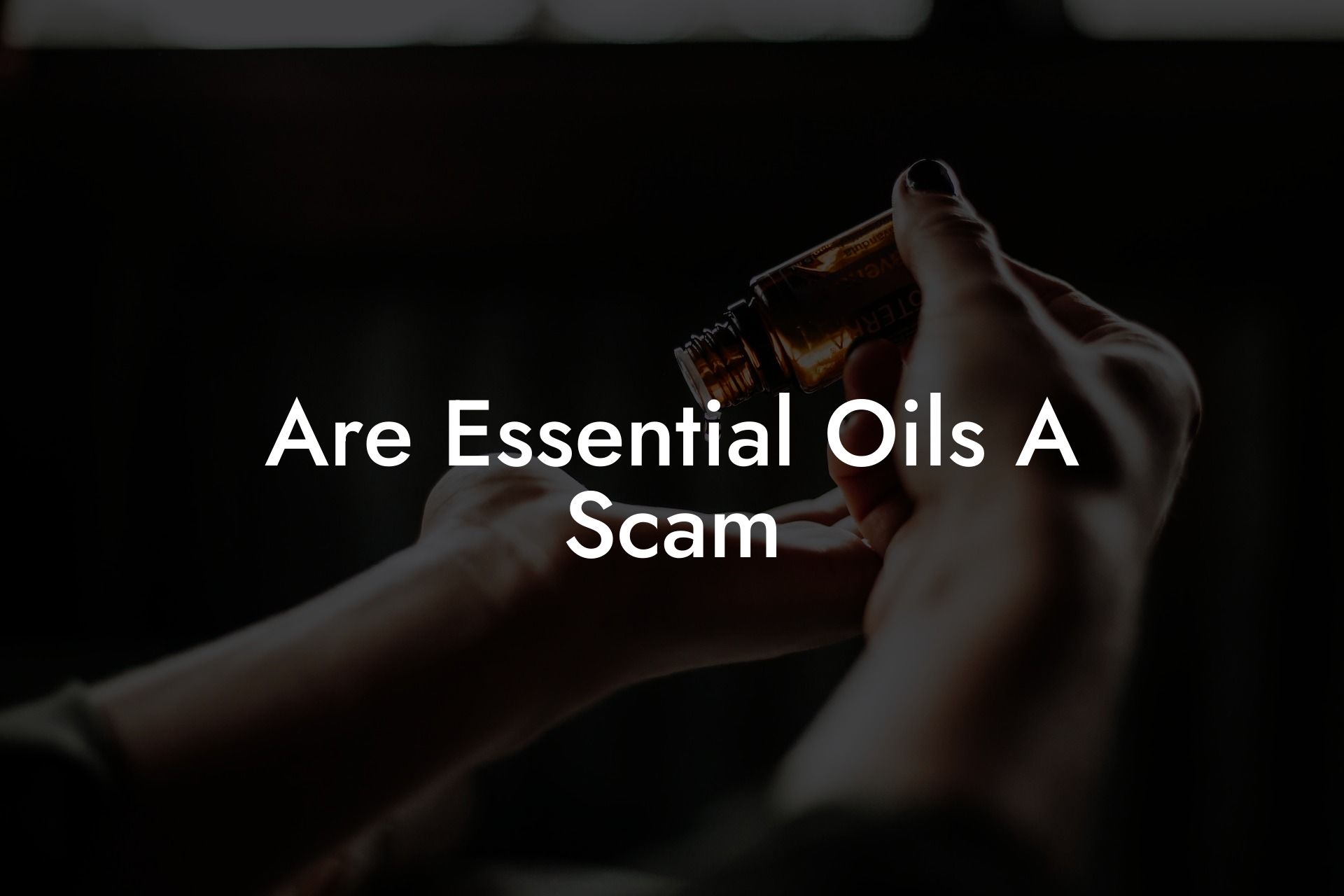Essential oils have been making waves in the health and wellness industry over the last few years, and for good reason. These powerful botanical extracts have been praised for their numerous benefits and applications. But with so many products and claims surrounding essential oils, it can be hard to distinguish between what’s real and what’s simply marketing hype. So, are essential oils a scam, or are they genuinely worth incorporating into your daily life?
Table of Contents
Understanding Essential Oils
Essential oils are highly concentrated plant-based extracts obtained through methods like steam distillation or cold pressing. They have been used since ancient times for various purposes, including aromatherapy, homeopathic remedies, skincare, and household cleaning. Additionally, they have antibiotic, antiviral, antifungal, and anti-inflammatory properties.
Identifying the True Benefits of Essential Oils
Many claims surround the use of essential oils, but it’s essential to differentiate between scientifically-backed benefits and folklore. Some well-known benefits of essential oils include:
- Relieving stress and anxiety
- Improving sleep quality
- Boosting energy and alertness
- Supporting respiratory health
- Alleviating headaches and migraines
- Managing skin conditions and promoting healthy skin
It’s important to note that while essential oils can support overall wellness, they should not replace conventional medicine, nor should they be considered a cure-all.
Choosing High-Quality Essential Oils
If you’re wondering whether essential oils are a scam, you may be concerned about the quality and effectiveness of the products available. The essential oil market has seen an influx of poor-quality products, making it crucial to know how to identify high-quality oils. Look for the following factors when choosing essential oils:
- Purity: Choose 100% pure essential oils without additives, fillers, or synthetic fragrances.
- Method of Extraction: Opt for oils that have been extracted through steam distillation or cold pressing, as these methods preserve the beneficial compounds in the plants.
- Organic: Select oils made from organically-grown plant materials to avoid pesticide residue.
- Reputation: Choose reputable companies that provide transparent information about their sourcing, testing, and quality control processes.
- Price: Remember that quality essential oils may cost more due to the careful extraction methods and high-quality plant materials used.
Are Essential Oils A Scam Example:
Imagine that you’ve had a long and stressful day at work, and you’re finding it challenging to unwind. You decide to try using an essential oil blend to help alleviate stress and promote relaxation. You choose a high-quality, 100% pure lavender essential oil from a reputable company like Oshu Oils.
You add a few drops of the oil to a room diffuser and allow the soothing scent to fill the air as you settle in for the evening. As you take in the calming aroma of lavender, you start to feel your stress melt away, your mind quieten, and your body relax. By incorporating this essential oil into your daily routine, you’re able to better manage stress and promote a sense of calm.
Essential oils can be a useful addition to your health and wellness journey if you choose high-quality products and use them correctly. While they’re not a magical cure-all, their benefits can significantly improve your daily life. Take your time to research and find the right essential oils that align with your specific needs.
If you found this article helpful, we encourage you to share it and explore our other informative guides on Oshu Oils’ blog. Dive deeper into the fascinating world of aromacology and enhance your wellbeing by immersing yourself in Oshu Oils’ handcrafted, artisan essential oil products.





















